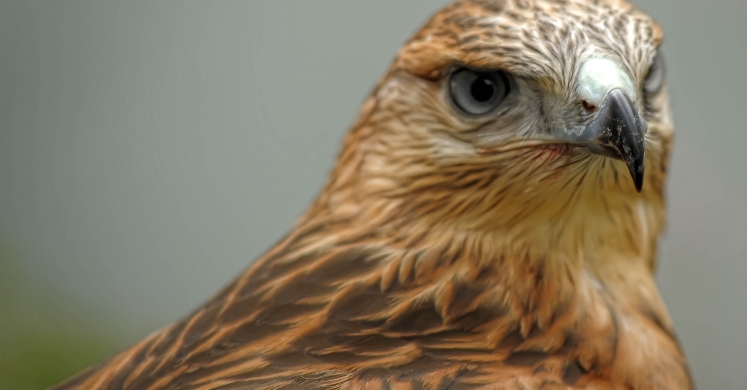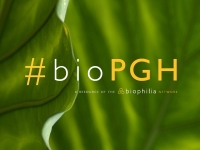Blog

#bioPGH Blog: Raptors
 A resource of Biophilia: Pittsburgh, #bioPGH is a weekly blog and social media series that aims to encourage both children and adults to reconnect with nature and enjoy what each of our distinctive seasons has to offer. From the best times to plant seasonal flora and enjoy their peak blooms, to astronomical events and creatures to keep an eye and ear out for, Phipps will keep you in the know with what’s going on in our environment!
A resource of Biophilia: Pittsburgh, #bioPGH is a weekly blog and social media series that aims to encourage both children and adults to reconnect with nature and enjoy what each of our distinctive seasons has to offer. From the best times to plant seasonal flora and enjoy their peak blooms, to astronomical events and creatures to keep an eye and ear out for, Phipps will keep you in the know with what’s going on in our environment!
Pittsburgh’s birds of prey are busy making headlines this month as we celebrate the anticipated arrival of Hays’ eaglets and mourn the loss of the Cathedral of Learning’s male peregrine, E2. Currently both the Hays and Harmar eagles are sitting on eggs, and just this week the Hays nest welcomed the first two eaglets of 2016 on Monday, March 21 and Tuesday, March 22, with the third expected to hatch this coming Saturday, March 26. Bald eagles typically lay a single clutch of 1 to 3 eggs per year, with each consecutive egg being laid approximately three days after the one preceding it. After a 35-day incubation period the eggs then begin to hatch, with each new eaglet making its appearance approximately three days after the first hatchling arrives. The bald eagles weren’t the only raptors to produce a clutch of eggs this month, the peregrine falcons at Pitt’s Cathedral of Learning, “Hope” and E2, also produced three eggs on Sunday, March 13; Tuesday, March 15; and Thursday, March 17. Unfortunately for the mated pair, E2 was found dead on Wednesday evening, March 16, in Friendship from a speculated car-strike. The female peregrine, Hope, continues to incubate the clutch of eggs despite E2’s absence and may yet attract and bond with a nearby male. Meaning, there may still be a chance for these three eggs to remain viable, or for Hope to mate again and produce a second clutch in the near future. For more information on the Pittsburgh peregrines and for further details regarding E2’s death and Hope’s current behavior please visit Kate St. John’s blog “Outside My Window.” While we do have a very unique window into the intimate day-to-day lives of these birds it’s important to remember to observe, not interfere, with the ebb and flow of nature. Several species continue to adapt and persist in our ever changing environment without human intervention. There will always be certain instances and situations where humans are required and encouraged to assist wildlife, however; but in regards to our peregrines, for instance, it is simply unnecessary and would cause more harm than good.
Connecting to the Outdoors Tip: There are several ways that we can help the species and environments we care about. From volunteering at local environmental cleanup events, such as Allegheny CleanWays’ neighborhood and tire cleanups; to supporting research conducted by local, and national, institutions and organizations through donations and memberships; and simply staying up-to-date on current environmental and conservation news and issues. While we do have a unique view into the lives of several native species that reside right here in Pittsburgh thanks to PixController, Inc.’s webcams, nothing beats getting outside and experiencing these species in person. Now that spring is officially upon us, consider grabbing a pair of binoculars and heading down to the Three Rivers Heritage Bike Trail for a walk or bike ride where, with a little patience, you can view Hays’ bald eagles as they come as go from the nest; or, heading into Oakland’s Schenley Plaza and keeping your ears and eyes peeled towards the Cathedral of Learning for Hope, the peregrine falcon. If you’re going to be outdoors, consider bringing along a few plastic bags to collect any wayside trash that you happen to come across before it becomes a long-term fixture in our environment or an unhealthy snack for wildlife. You don’t need to leave your home, however, to help keep Pittsburgh clean. Maintaining a healthy environment, for people and wildlife, begins in the home, so consider sorting recyclables and compostable materials from your daily trash to help cut down on the amount of non-biodegradable materials that make it into our local landfills. You can even help get little ones into this healthy habit early on with a miniature sorting recyclables set of their own!
Additional Resources:
Pittsburgh Bald Eagles – Hays Nest Cam - PixController
Pittsburgh Bald Eagles – Harmar Nest Cam - PixController
Outside My Window: A Bird Watcher's View of the World
Pitt Peregrine Falcon Nest Cam - National Aviary
Allegheny CleanWays - Current and Upcoming Events
PixController, Inc.
Three Rivers Heritage Bike Trail - Trail Link
Sorting Recyclables Activity - Munchkins and Moms

